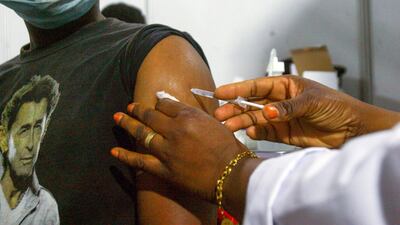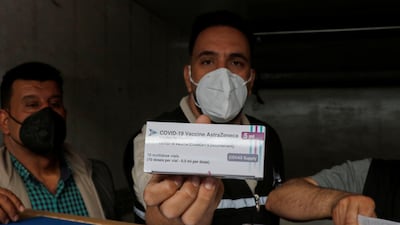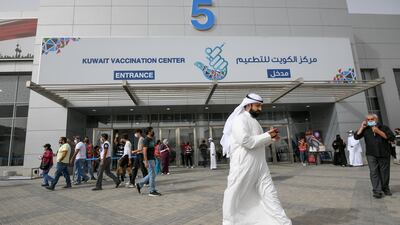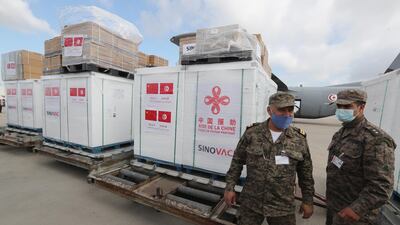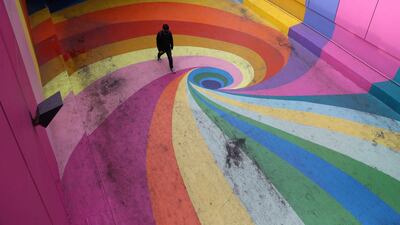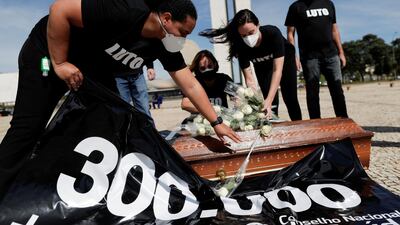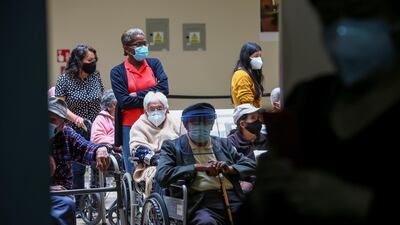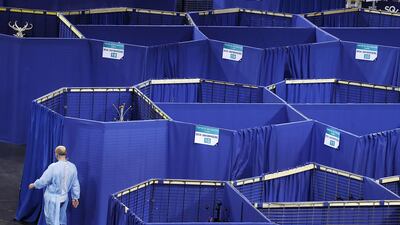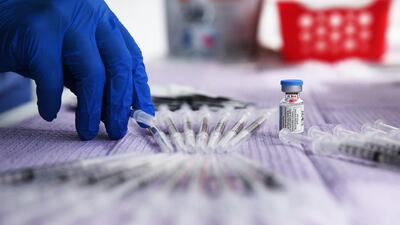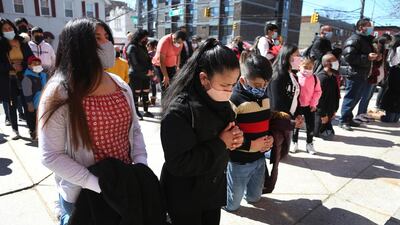The UN on Friday backed a Lebanese effort to ensure Covid-19 vaccines are available everywhere and that rich countries do not keep supplies to themselves, leaving poor countries unable to import shots.
The 193-nation UN General Assembly adopted a non-binding political declaration on fair access to Covid-19 vaccines with support from 180 countries. The initiative was proposed by the delegation from Lebanon, which has struggled to import enough shots.
Beirut’s UN ambassador Amal Mudallali said fewer than 55,000 people in Lebanon had received the needed two doses of vaccine out of a population of five million, which has swelled due to inflows of Syrian refugees.
“But Lebanon is one of the lucky ones who received vaccines,” said Ms Mudallali.
“Some countries are still waiting for their shipments and their situation is grimmer with rising infections and not a single dose of vaccine administered.”
Of all the Covid-19 vaccine shots administered globally, 56 per cent have gone into the arms of people in rich countries while only 0.1 per cent have been administered in the world's 29 poorest nations, said Ms Mudallali.
Ghana and Ivory Coast in February became the first countries to receive Covid-19 shots under the global Covax vaccine-sharing programme, designed to help poor and middle-income countries gain access to the sought-after vaccines.
The programme, backed by the World Health Organisation and Gavi vaccine alliance, has so far distributed 31 million doses to 57 countries, although the rates lag behind richer countries.
The initiative aims to secure 2 billion vaccine doses by the end of 2021 but it has struggled to raise enough money. The political declaration adopted on Friday called for “full funding” of the programme.
“The current picture of vaccine roll out in the world is very worrying,” Ms Mudallali told the UN.
“It is slow and skewed in favour of those with the means, technology and health infrastructure to roll it out successfully. The gap between those who have access to vaccines and those who do not is striking.”
Volkan Bozkir, president of the UN General Assembly, said countries were uniting against the “global issue of our time”.
“Over the past year, we have seen countries and companies from across the world come together to invest in, develop and bring to market multiple proven vaccines,” said Mr Bozkir.
“We have shared personal protective equipment, critical life-saving knowledge and resources to help overcome broad and unprecedented socio-economic impacts.”
Hopes are high that the global distribution of vaccines will this year turn the tide on the pandemic, which has infected 126 million people, claimed some 2.8 million lives and shuttered economies since it was first discovered in China at the end of 2019.
